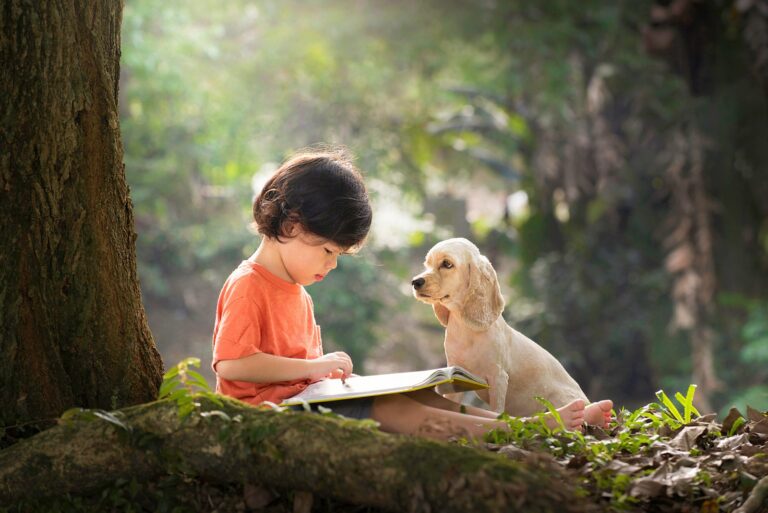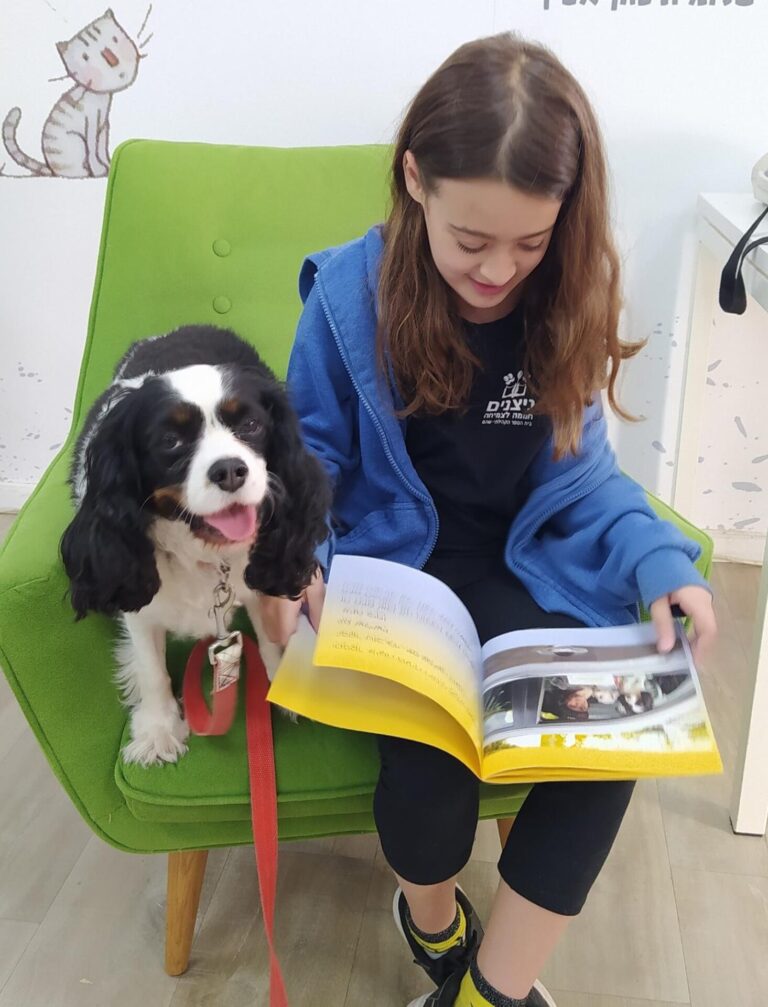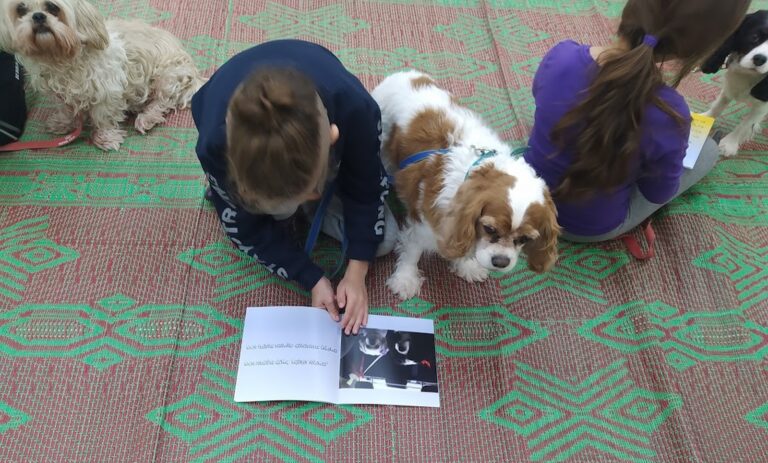Reading out loud to non-judgmental, accepting dogs encourages children to read and helps them improve fluency and accuracy.
By Naama Barak, ISRAEL21c
Practicing their reading is probably not on the top of any fourth-grader’s to-do list. But when you add a cute dog or two to the task, it becomes much more enjoyable and, according to the findings of a recent study, more effective.
“Studies show that reading fluently is key to a child’s learning process and independent learning, and that it helps them integrate into society, not to mention the social and emotional aspects of reading and the self-fulfillment that it provides,” explains Shirley Har-Zvi, head of the special-education track and senior lecturer at the Talpiot College of Education in Holon.
“We sought to find an original way that would motivate students to want to practice their reading,” she adds. “And to create that motivation, we decided to use dogs.”
In the study, which was led by master’s student Ortal Levi, a teacher herself, and supervised by Har-Zvi, 29 fourth-graders from a school in central Israel were divided into two groups that were instructed to dedicate time and effort to 10 reading sessions.
Children from one group read out loud to themselves, while the kids from the other group read out loud to their four-legged friends.
Immensely helpful
The results, Har-Zvi says, were conclusive.
“Both groups improved immensely, but the group that read out loud to the dogs significantly improved in terms of reading accuracy. We assume that if we’d conduct the same study on a group for a longer period, then maybe there’d also be an impact on reading speed and not only accuracy,” she says.

“Lots of children today have more reading difficulties because they didn’t go through second and third grade because of Covid,” she notes.
“They didn’t have the chance to practice reading, and that’s why we’re seeing a lot of children with reading difficulties. This program, which worked on reading fluency, really helped them advance.”

The dogs that accompanied the study were made available by Ita Merla, a veteran teacher who works at the school where it was conducted. She also specializes in animal therapy and training.
“When people hear about this, they’re a bit skeptical and ask, ‘Well, wouldn’t children also improve if they read out to a friend? Or to their parents or teacher?’
“The answer to that is yes, they would improve if they’d read out to friends, parents or teachers, but the problem is that they don’t, for a variety of reasons. Children are very busy with a lot of other things, and parents are also far less available nowadays. Not to mention that children worry about being judged and criticized – something they won’t get from dogs,” she explains.
Dogs motivate kids
Merla notes that even when children are given dedicated reading slots at school, there’s no guarantee that they’d actually use it to read.

“Kids can hold the book open, but they don’t necessarily end up reading. They might stare at it, or daydream – you can’t technically force them to read. But with the dogs they’re really motivated to do it, even the kids who didn’t initially want to,” she says.
“The dogs provide the motivation and never-ending excitement, and this has results, which I’m happy also came through in the study. The dogs provide the children with a non-judgmental environment, and they sit calmly and attentively next to the children while they read out loud – and there’s no one to laugh at you or correct you,” Merla adds.
“They exercise self-criticism when they read out loud, and are able to fix their own mistakes, without worrying about keeping up with anyone else’s pace.”

Moreover, she notes, “Children who you couldn’t get to read, however creatively you tried, have become reading champs.”
She was also surprised that even children who already read well wanted to read out loud to the dogs.
“In the study, there was a group that read to the dogs and a control group. When the study ended, we let the control group read to the dogs as well,” she tells ISRAEL21c.
“There’s something about animals, and dogs in particular, that is very accepting of children. This feeling that they give them – that they’re loved and accepted as they are — it comes through.”
